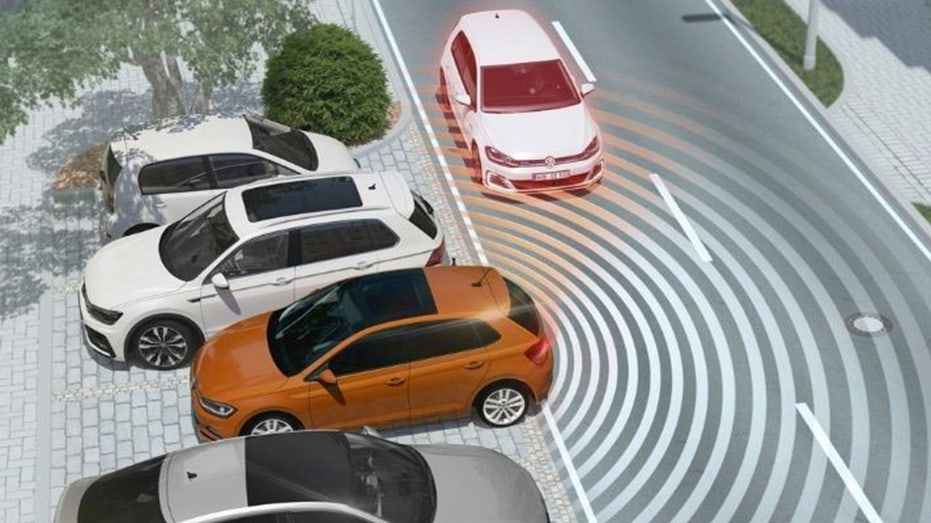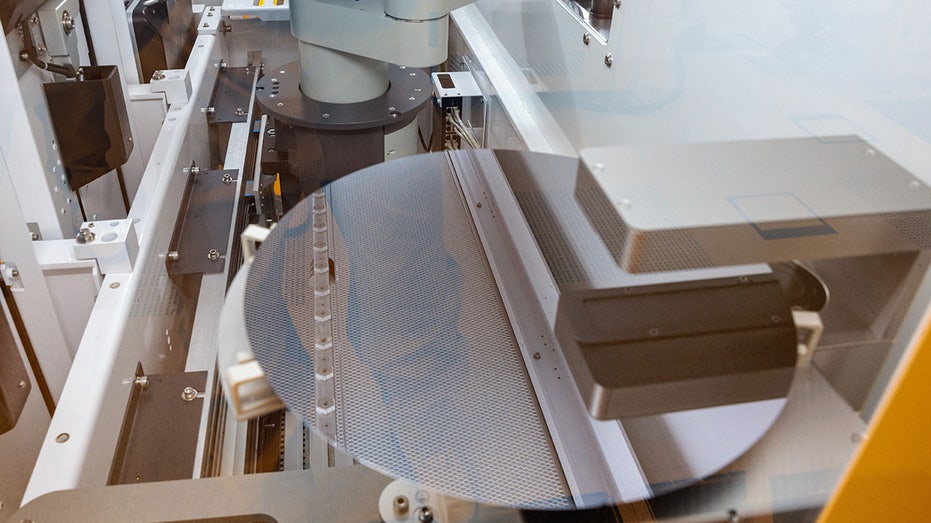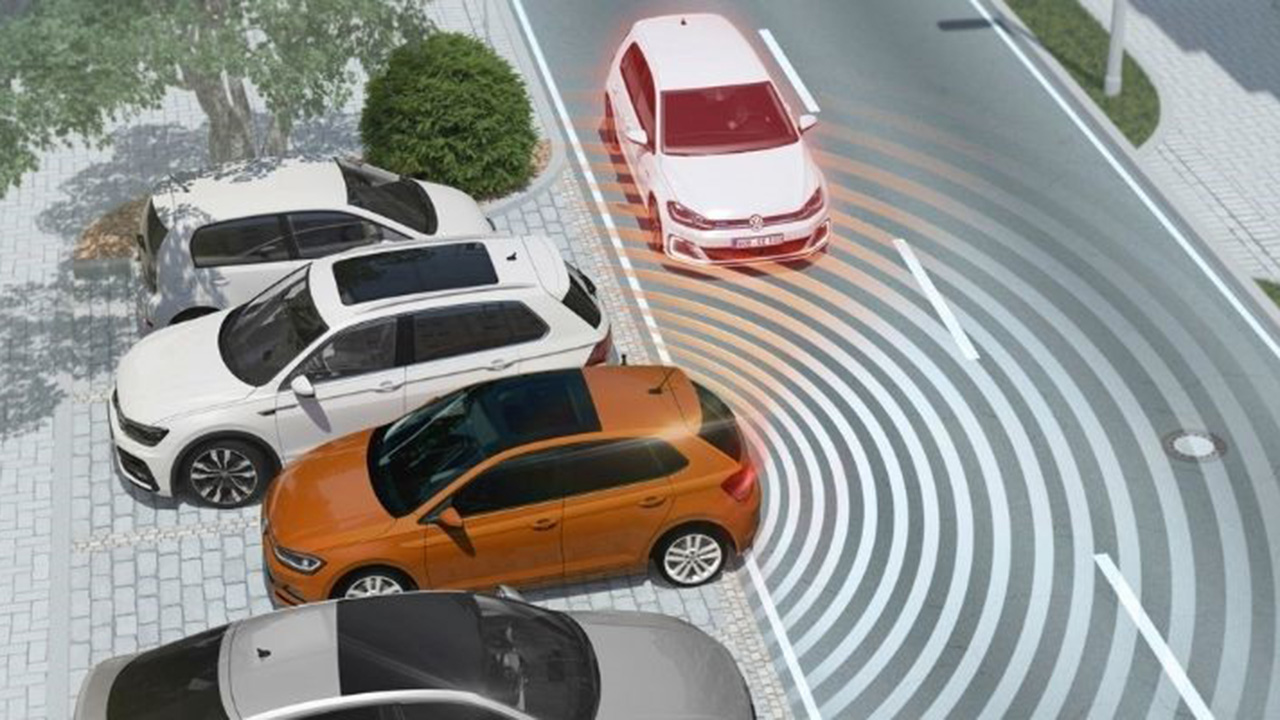Semiconductor shortage is chipping away at car safety features
Some automakers are deleting options for consumers amid today's chip shortage
The ongoing semiconductor chip shortage has some new car buyers looking over their shoulders.
Not for good deals, but for oncoming traffic.
Automakers struggling to build vehicles during the supply crisis of these essential components have had to remove a variety of electronic features from their vehicles to keep the assembly lines moving over the past two years.
Everything from heated seats to fuel-saving cylinder-deactivation systems and touchscreen displays have been removed at times.
AUTO BODY SHOPS FACE MONTHS-LONG WAITS FOR PARTS AMID SUPPLY CHAIN BREAKDOWN: ‘VERY FRUSTRATING’
Safety features aren’t immune from the cuts.
Due in part to a scarcity of sensors, the availability of such optional features as blind spot monitoring systems, proximity alerts and semi-automated driver aids (ADAS) has also been suspended in some cases.

Some cars' blind spot monitors use radar to detect oncoming traffic. (FOX Business / Fox News)
Volkswagen and Cadillac are among the brands currently not offering blind spot monitors and other ADAS on some models — but the situation is constantly changing. The two automakers could not offer an outlook on availability at the time this story was published.
"Automakers are in a tight spot when the materials aren't available for some of the safety technology," Jessica Cicchino, vice president of research for the Insurance Institute for Highway Safety (IIHS), told FOX Business.
| Ticker | Security | Last | Change | Change % |
|---|---|---|---|---|
| GM | GENERAL MOTORS CO. | 84.24 | +0.94 | +1.13% |
| F | FORD MOTOR CO. | 13.80 | +0.08 | +0.58% |
| TSLA | TESLA INC. | 411.11 | +13.90 | +3.50% |
| TM | TOYOTA MOTOR CORP. | 244.22 | +7.03 | +2.96% |
"It really shifts the burden on the consumers who are already having a hard time shopping for a car," she also said.
GEORGIA PORT HIT WITH SIDE EFFECTS OF WORLDWIDE CHIP SHORTAGE
Blind spot monitoring systems aren’t mandated by any regulations, but they have become more common — and with good reason.
An IIHS study found that the system can reduce injurious collisions by 23%, while the rear cross-traffic alert that’s often bundled with it can cut backup crashes by 22%.

Volkswagen's rear cross-traffic alert can sense when vehicles are approaching from the side while the driver is backing out. (VW / Fox News)
"While we don't test for them in our vehicle ratings programs, these are useful technologies to have, and we do want to see them on as many vehicles as possible," Cicchino also said.
Since they’re not required, these systems still aren’t available at all on certain models, which makes it difficult to track exactly how many vehicles are being built without them.
An automaker could simply shift toward manufacturing more of the low-spec models that don’t have them without expressly "removing" the features.
"These are useful technologies to have, and we do want to see them on as many vehicles as possible."
"It's unfortunate that the chip shortage may prevent a new model from coming with the latest safety features that can prevent crashes and injuries," said Jake Fisher, senior director of automotive testing at Consumer Reports.
"After all, better safety is one of the leading reasons people decide to upgrade their car in the first place," he said.
"However, most automakers have the required chips to keep producing their models without removing equipment — and a smart shopper will avoid the models that do."

Semiconductor production has not been able to keep up with demand across numerous electronic-intensive industries. (Jens Schlueter/AFP via Getty Images / Getty Images)
Automotive online marketplace Edmunds, which first reported on how Volkswagen and Audi were removing blind spot monitors and rear cross-traffic alerts in exchange for price reductions, advises car buyers to do their homework.
HERE'S WHAT THE SUPPLY CHAIN WILL LOOK LIKE FOR THE REST OF THE SUMMER
"I think you can't rely on the salesperson to know every single thing that's on the car," said Ronald Montoya, Edmunds' senior consumer advice editor.
"So I recommend looking at the window sticker because the feature will be deleted at the factory and noted — and that's probably the best way to go about it," he added.
"It'll mean that fewer of tomorrow's vehicles on the road will have this important technology."
"It's really a challenge to shop for a car today," Cicchino also said.
"Vehicles in general [are] hard to find, but then [consumers have] to do the extra step of making sure that a vehicle has the technology that you want with the fluid situation of, sometimes, the information you're going to get is not always 100% accurate," she said.
AVERAGE CAR PAYMENT HITS RECORD $712/MONTH AS NEW, USED CAR PRICES CONTINUE TO CLIMB
With the average age of a car now over 12 years, it’s not just an issue in today’s tight buyer’s market.
"We will be seeing the consequences of the chip shortage for years to come," said Cicchino. "These vehicles are going to stay in the fleet now that people keep their cars for more than a decade."
GET FOX BUSINESS ON THE GO BY CLICKING HERE
"It'll mean that fewer of tomorrow's vehicles on the road will have this important technology," she also said.




















